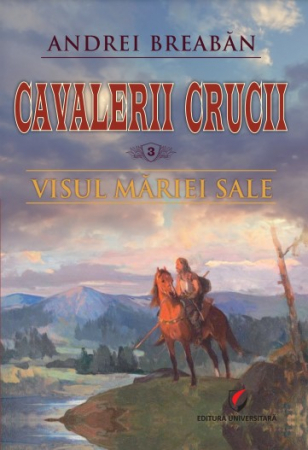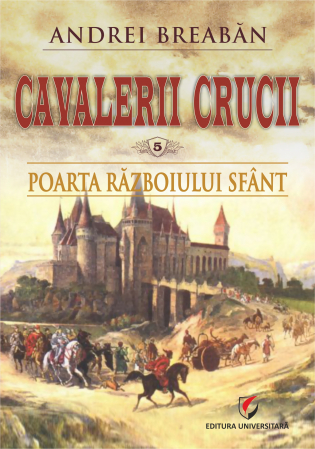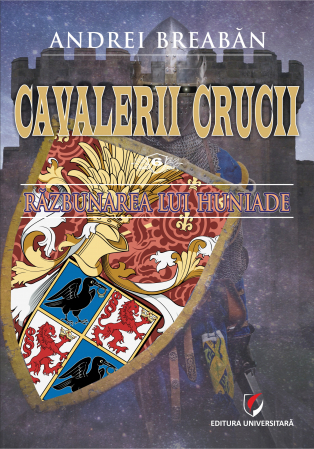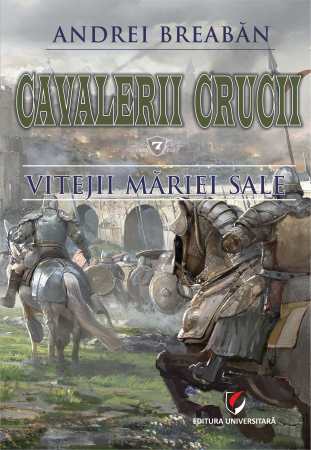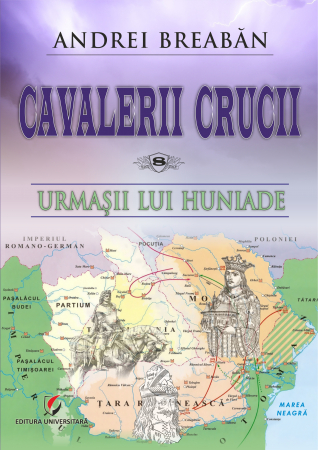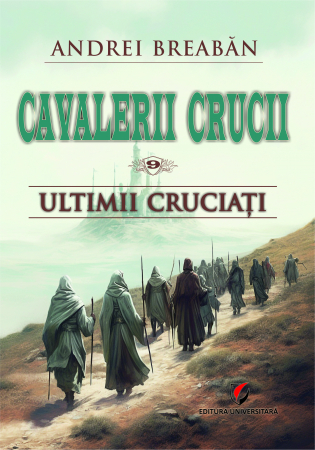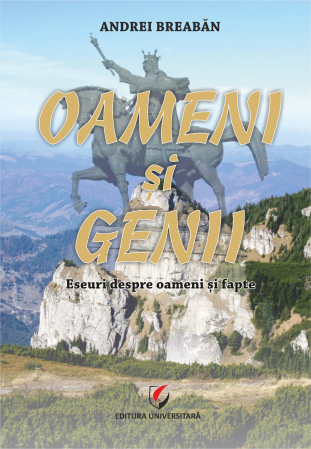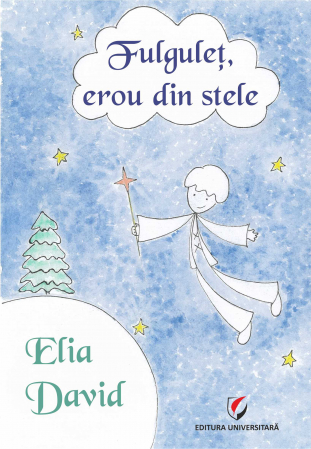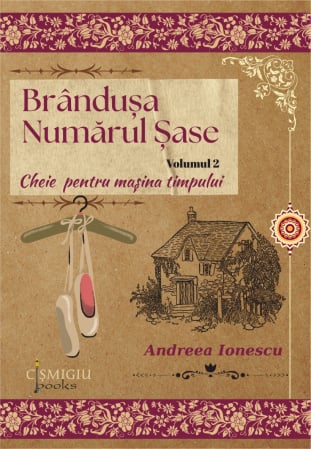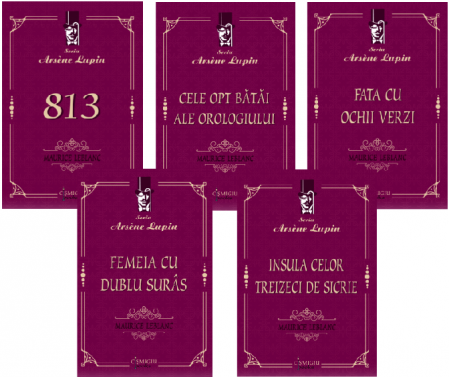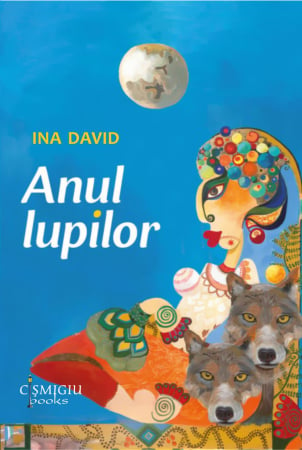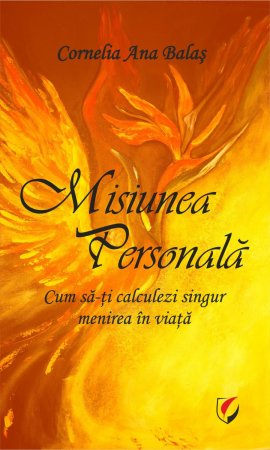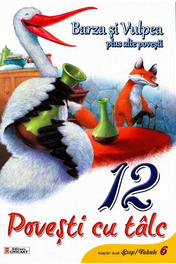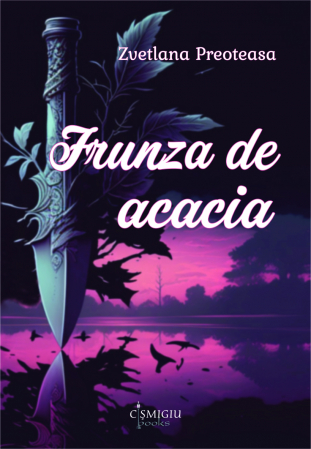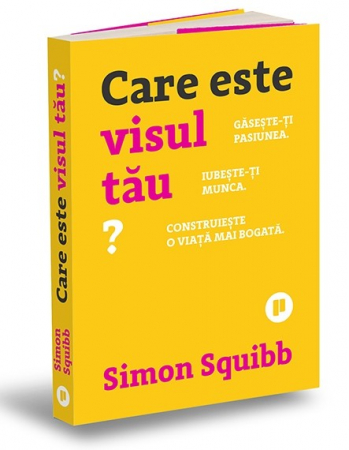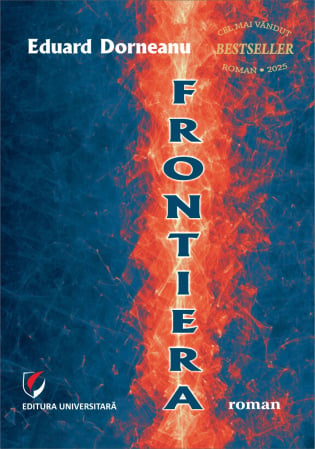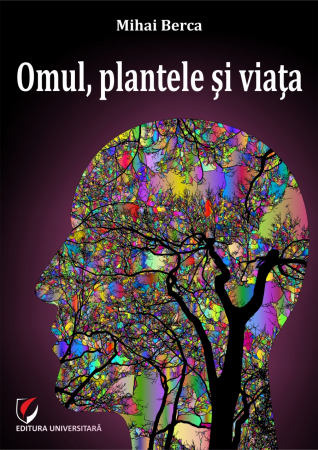Manuscript proposals: [email protected] / 0745 204 115 //// Tracking orders Individuals / Sales: 0745 200 357 / Orders Legal entities: 0721 722 783
Publisher: Editura Universitară
Author: Andrei Breaban
Edition: revised
Pages: 438
Publisher year: 2023
ISBN: 978-606-28-1684-1
DOI: 10.5682/9786062816841
Product Code:
9786062816841
Do you need help?
0745 200 357
- Download (1)
- Authors
- Content
- More details
- Reviews (0)
-
The castle on the Dniester
Download
ANDREI BREABAN
Books published:
* Monasteries from Bucovina: The Heavenly Jerusalem of Romania, Tourist Guide, TipoMoldova Publishing House, Iași, 2017;
* Christian Dacia in verses, TipoMoldova Publishing House, Iași, 2017, poems;
* Meditations... under the moonlight, TipoMoldova Publishing House, 2018, poems;
* Land of the Dacians: Events and legends from long ago, TipoMoldova Publishing House, 2017, historical legends;
* Treasures of the Thracians, Heroes of an immortal nation, TipoMoldova Publishing House, 2018, historical legends;
* Constellation of monasteries: Pilgrimage through sacred places, TipoMoldova Publishing House, 2018, essays;
* From the time of the great king Decebal, TipoMoldova Publishing House, historical novel;
* Legends of Kogaion, TipoMoldova Publishing House, 2019, historical legends;
* Kingdom of Immortality, Zamolxianism of yesterday and today between truth and legend, Timpul Publishing House, Iasi, 2020, historical legends;
* The Kingdom of Musatini, 2 volumes, Timpul Publishing, 2020, historical legends;
* Her Majesty's Braves, Timpul Publishing House, 2020, historical novel in two volumes;
* At the Gates of Destiny, Publishing House Salonul Literar, Odobeşti, 2020, historical novel in two volumes;
* Parallele rules, Semne Publishing House, Bucharest, 2021, historical novel in two volumes;
* The Dream of His Majesty, Timpul Publishing House, 2021, historical novel;
* And if tomorrow will come, Time Publishing House, 2021, essays;
* From the time of Ștefan Vodă, Bogdania Publishing House, Focșani, 2022, essays;
* Martyrs of yesterday and today, Bogdania Publishing House, Focșani, 2022;
* From Alfa to omega, Timpul Publishing House, 2022, essays;
* Castle on the Dniester, Timpul Publishing House, 2022, historical novel;
* Stephen the Great and the Holy – Golden Age of Moldova, Bestseller Publishing House, Chisinau Bucharest, 2022.
* Mythological Dacia, Bestseller Publishing House, Chisinau Bucharest, 2023.
Books published:
* Monasteries from Bucovina: The Heavenly Jerusalem of Romania, Tourist Guide, TipoMoldova Publishing House, Iași, 2017;
* Christian Dacia in verses, TipoMoldova Publishing House, Iași, 2017, poems;
* Meditations... under the moonlight, TipoMoldova Publishing House, 2018, poems;
* Land of the Dacians: Events and legends from long ago, TipoMoldova Publishing House, 2017, historical legends;
* Treasures of the Thracians, Heroes of an immortal nation, TipoMoldova Publishing House, 2018, historical legends;
* Constellation of monasteries: Pilgrimage through sacred places, TipoMoldova Publishing House, 2018, essays;
* From the time of the great king Decebal, TipoMoldova Publishing House, historical novel;
* Legends of Kogaion, TipoMoldova Publishing House, 2019, historical legends;
* Kingdom of Immortality, Zamolxianism of yesterday and today between truth and legend, Timpul Publishing House, Iasi, 2020, historical legends;
* The Kingdom of Musatini, 2 volumes, Timpul Publishing, 2020, historical legends;
* Her Majesty's Braves, Timpul Publishing House, 2020, historical novel in two volumes;
* At the Gates of Destiny, Publishing House Salonul Literar, Odobeşti, 2020, historical novel in two volumes;
* Parallele rules, Semne Publishing House, Bucharest, 2021, historical novel in two volumes;
* The Dream of His Majesty, Timpul Publishing House, 2021, historical novel;
* And if tomorrow will come, Time Publishing House, 2021, essays;
* From the time of Ștefan Vodă, Bogdania Publishing House, Focșani, 2022, essays;
* Martyrs of yesterday and today, Bogdania Publishing House, Focșani, 2022;
* From Alfa to omega, Timpul Publishing House, 2022, essays;
* Castle on the Dniester, Timpul Publishing House, 2022, historical novel;
* Stephen the Great and the Holy – Golden Age of Moldova, Bestseller Publishing House, Chisinau Bucharest, 2022.
* Mythological Dacia, Bestseller Publishing House, Chisinau Bucharest, 2023.
Preface - A Stefanian epic cycle, by Ioan Holban / 5
Chapter 1 - Abduction of the boyars / 11
Chapter 2 - The Castle on the Dniester / 29
Chapter 3 - Release of hostages / 47
Chapter 4 - Pârcălabu Stanciul / 61
Chapter 5 - The great orator Mihu / 81
Chapter 6 - Petru Aron the Monk / 92
Chapter 7 - The Voivodeship Family of Moldova / 108
Chapter 8 - Voivodship meeting in Brașov / 124
Chapter 9 - Distinguished Guests at the White Citadel / 143
Chapter 10 - Secret intrigues at the White Castle / 151
Chapter 11 - Wedding Preparations / 159
Chapter 12 - Princess Anastasia's Wedding / 169
Chapter 13 - Stop at the Bathroom / 194
Chapter 14 - Preparations for parastas / 207
Chapter 15 - Parastas with raiders / 222
Chapter 16 - His Majesty's Command / 245
Chapter 17 - The royal messengers at Petru Vodă's court / 268
Chapter 18 - The Crusaders / 283
Chapter 19 - On the way to Hunedoara / 305
Chapter 20 - Message of Moldova / 321
Chapter 21 - Worshiping the Turks / 332
Chapter 22 - War Preparations / 361
Chapter 23 - Worshiping corpses / 395
Glossary / 422
Bibliography / 432
Contents / / 435
Books published by the author / 437
Chapter 1 - Abduction of the boyars / 11
Chapter 2 - The Castle on the Dniester / 29
Chapter 3 - Release of hostages / 47
Chapter 4 - Pârcălabu Stanciul / 61
Chapter 5 - The great orator Mihu / 81
Chapter 6 - Petru Aron the Monk / 92
Chapter 7 - The Voivodeship Family of Moldova / 108
Chapter 8 - Voivodship meeting in Brașov / 124
Chapter 9 - Distinguished Guests at the White Citadel / 143
Chapter 10 - Secret intrigues at the White Castle / 151
Chapter 11 - Wedding Preparations / 159
Chapter 12 - Princess Anastasia's Wedding / 169
Chapter 13 - Stop at the Bathroom / 194
Chapter 14 - Preparations for parastas / 207
Chapter 15 - Parastas with raiders / 222
Chapter 16 - His Majesty's Command / 245
Chapter 17 - The royal messengers at Petru Vodă's court / 268
Chapter 18 - The Crusaders / 283
Chapter 19 - On the way to Hunedoara / 305
Chapter 20 - Message of Moldova / 321
Chapter 21 - Worshiping the Turks / 332
Chapter 22 - War Preparations / 361
Chapter 23 - Worshiping corpses / 395
Glossary / 422
Bibliography / 432
Contents / / 435
Books published by the author / 437
After the Dream of His Majesty, Andrei Breaban continues the Stefanian epic cycle, with the novel The Castle on the Dniester, focusing a completely remarkable narrative approach, unique in our literature today, on the figure of Stephen the Great and Saint, one of the hero rulers, according to the expression to N. Iorga, of our Medieval Age. Despite the subject matter, the abundance of epic material, the historical analysis, Stephen the Great is not an important character in our literature: with the exception of the play Sunset (Apus de soare), by Barbu Stefanescu-Delavrancea and the novel The Jderi brothers (Fratii Jderi), by Mihail Sadoveanu, we can record, under regime of inventory, a waste paper printed quickly and to order, at the beginning of the last century, at the "call" of N. Iorga and, even if more timidly, in the 50s, in the bed of Procust of the ideology of the time.
Andrei Breaban's Stefanian epic cycle is, as can be seen even from the first novels, a solid narrative construction, with a platform without a crack in terms of historical information, as much as the historical treatises and archival documents provide, but also the legends contained in popular literature or in the creations of (almost) anonymous authors, without the melting of "author's varnish", honest, exploiting the variable scope of their imagination. Andrei Breaban writes a novel of historical reconstruction, without excessive essay lengths and precious historical "expositions", in a formula for today's reader's taste, but, at the same time, Dream of His Majesty and The Castle on the Dniester are built on the plot of novels "of adventures", more precisely "of head and sword", he wrote alertly, in a coherence of plans that cannot be found in so many other books of today and yesterday, alternating evocations, period paintings - recalls from the past, as G called them Galaction - with fight scenes, head and sword, in a cinematic setting (Sergiu Nicolaescu would have found numerous historical film scenarios in Andrei Breaban's novels) and with the thread of the biography of the protagonist of his epic cycle.
In the novel Dream of His Majesty, the later "athlete of Christianity" is only Stefan, the son of Bogdan Voda, murdered in front of the child by his brother, Petru Aron, a teenager who, sent by Iancu de Hunedoara, wanders around the world, together with his uncle or, the boyar Vlaicul, to the Italian condottieri, to learn the trade of weapons, to Mount Athos, where, at the Zografu Monastery, he tried the idea of becoming a monk, to Istanbul, in the first years of the rule of Constantine's fortress by Mohammed, to the White Citadel , Chilia and at the court of Iancu de Hunedoara: "I was there in the year 1454, the year 6952 from the Creation of the World", as Andrei Breaban likes to record the flow of our time. Historical documents do not tell us much about this segment of Stephen the Great's biography; the silent spaces in the archives receive substance from the imagination of the prose writer, well-tempered, without ostentation and without rhetorical excesses.
In the Castle on the Dniester, we are in the year 1455, the year 6953 from the Creation of the World: this is the time-epoch of the novel, Stefan remains somewhere, in the subtext of the book, the foreground being occupied by such diverse figures of a very problematic era from the history of Europe and the Romanian countries. The protagonist of this novel of the narrative cycle is what I would call the collective character; Stefan the Great appears only on the occasion of an (almost) secret visit to Moldova, to attend the funeral of his father, Bogdan Voda, killed at a wedding in Reuseni by his brother, Petru Aron, called "The Monk", who is following him, with the same thoughts, and his grandson to make sure definitively that he remains the only living descendant of Alexander the Good, the nobleman who is righted to the throne of Moldavia. Many other secondary characters occupy the stage of the novel, from which Andrei Breaban selects typologies, spins their stories and, above all, portrays them in firm tones, creating memorable faces of Mohammed himself, Vlad of Wallachia, Stefan, Iancu de Hunedoara, Miss Anastasia , Petru Aron etc. Here are just two examples: Mohammed, the conqueror of Europe: "A distant and dark character who rarely smiled, Mohammed had a long and pale face, with eyes the color of emeralds, deep in the sockets and penetrating, the eyebrows joined above a small and bent nose, the disdainful mouth, the long and curly brown hair, under which a broad forehead partially covered by a turban came down as if it wanted to hide even more the thoughts that were grinding him from moment to moment, the not too big chin being covered with a short beard and round of the same color as the locks usually hidden from the view of those around. Something above average in height, he had a robust and energetic body, a haughty look and a disdainful smile that gave shivers of horror to those around him. When he was equipped for battle, he carried his weapons with perfect nobility, showing that he was the most perfect knight of the West"; Petru Aron, the fratricide: "With long brown locks, Petru Aron had an oval face, with slightly sunken cheekbones towards the chin, which reinforced the harshness that could be seen on his face. The medium-sized nose was slightly elongated down, approaching the upper lip covered by a beautifully twisted mustache at both ends. The black eyes cast eagle glances competing with the thick eyebrows, the same color as the hair. The slightly rounded beard ended with a well-groomed beak that made him look more mature than the three decades he had behind him. The robust and well-made body commanded respect through the specific features of the Musatini".
Boyars, some raised in the faith and love of country and nation, such as Mihu, the great speechwriter of Moldova, the parcalab Stanciul from the White Citadel, Manoil from Hotin, others, intriguers and assassins, such as Bratu who plotted the assassination of Bogdan Voda at the wedding in Reuseni, but also at that of Alexandrel Voda, at the White Citadel, improvised rulers, Alexandrel Voda and Petru Aron, who came to the throne after the murder of his brother, dictating acts of worship to the Turks and the Poles, listening to the orders in knees, in the good Romanian tradition, until today (Crai Cazimir of Poland, "he likes as many bows as possible", and Petru Aron is in a hurry to make them), Maryna, Anastasia, merchants who "agonize like bees", leaving the wives to waste at home, as the mucalite Mihu says, innkeepers, such as Scofala who keeps an inn on the way to the White Citadel, Italians, the Genoese Senarega, the lords of Lerici, the castle on the Dniester, robbing the merchants who pass by or Giovanni da Capestrano, a Franciscan friar "sent by the Pope to the Kingdom of Hungary on the 14th of February 6964, takes the cross in his hand and dedicates himself to the fight for the defense of Christianity, gathering troops and money for the crusade prepared by Iancu de Hunedoara", Turks led by Mohammed, who uproot Europe and they make fast passes on the way to Vienna, in Europe of the 15th century, complicated (but when was Europe not complicated?), the hero of the time, Iancu de Hunedoara, robbers who rob the rich caravans of merchants leaving Caffa and the White Citadel for Lviv, Brasov, Podolia, Galicia and Lithuania: "The Northern Territory of Moldavia was often attacked by the Tatars who came from beyond the Volga, who considered themselves the successors of Ginghis Khan", and the Southern parts of the country by the Tatars who were attacked in the Crimea where they constituted a powerful Khanate that ruled the entire region. "Besides the expeditions organized by the inn of the Golden Horde itself or by the one who luxuriated in the beautiful palaces of Bahcisarai, in the parts close to the borders of Moldova, there were also gangs of looters who engaged in robbing the caravans that beat the trade roads that connected Liovul to the Citadel White. They attacked them unexpectedly, looting their goods and taking them hostage, then demanding large sums of money as ransom. Those who did not pay were sold as slaves at Caffa, famous for such merchants".
More than the previous novel of his Stefanian cycle, Andrei Breaban appeals, in The Castle on the Dniester, to an impressive bibliography, no less than sixty positions, covering monographs, chronicles of the time, archival documents, chronicles, history treatises medieval, but also books such as the Life of Stefan the Great, by Mihail Sadoveanu or the Holy Voivode Stefan the Great, between heaven and earth, by Calinic Argatu; and, on this bibliography, the pact of verisimilitude is formed from which the novels of Andrei Breaban, perhaps the most informed historian among prose writers, regarding the Stefanian era, grow. Beyond the narrative thread that separates the biography of Stephen the Great, the prose writer has a remarkable talent in reconstructing the era, of Moldova, in its entirety since then, with the White Citadel, Chilia, the Lerici Castle on the Dniester, the Vasluiului Fair, the Baia Fair, Suceava , Lapusna, with the preserved traditions, here, until today, are the wedding customs or the parastas from Reuseni; here is the Castle on the Dniester: "Lerici Castle, with its majestic towers, was proudly reflected in the waters of the Dniester, which formed a wide port a little further downstream, preparing to flow into the sea. The playful waters of the river played boisterously with the foamy waves, which came from the sea, leaving behind some of their excess salt, as a sign of the goodwill with which it received them in order to unite with them for eternity. Raised right on the bank of the Dniester, in order to be easier for the device, the waters swayed by the wind would relentlessly hit the stone walls of the Castle, which they washed of the dust coming from the land, brought over them by the same playful wind, so that every day they were competing to leave more traces on them". Andrei Breaban's Moldova is an identity space of the nation and, at the same time, the original space of the prose writer; exceeding, perhaps, the too many summaries in an overwhelming bibliography, Andrei Breaban evokes, with undisguised emotion, a space and a history of heroes.
The fourth volume of the Stefanian epic cycle is a good promise for what, I have no doubt, will follow; basically, Stefan the Great has not yet settled in Suceava, in the Dream of His Majesty and the Castle on the Dniester, the novels of a prose writer who must be taken into account.
Ioan Holban
Andrei Breaban's Stefanian epic cycle is, as can be seen even from the first novels, a solid narrative construction, with a platform without a crack in terms of historical information, as much as the historical treatises and archival documents provide, but also the legends contained in popular literature or in the creations of (almost) anonymous authors, without the melting of "author's varnish", honest, exploiting the variable scope of their imagination. Andrei Breaban writes a novel of historical reconstruction, without excessive essay lengths and precious historical "expositions", in a formula for today's reader's taste, but, at the same time, Dream of His Majesty and The Castle on the Dniester are built on the plot of novels "of adventures", more precisely "of head and sword", he wrote alertly, in a coherence of plans that cannot be found in so many other books of today and yesterday, alternating evocations, period paintings - recalls from the past, as G called them Galaction - with fight scenes, head and sword, in a cinematic setting (Sergiu Nicolaescu would have found numerous historical film scenarios in Andrei Breaban's novels) and with the thread of the biography of the protagonist of his epic cycle.
In the novel Dream of His Majesty, the later "athlete of Christianity" is only Stefan, the son of Bogdan Voda, murdered in front of the child by his brother, Petru Aron, a teenager who, sent by Iancu de Hunedoara, wanders around the world, together with his uncle or, the boyar Vlaicul, to the Italian condottieri, to learn the trade of weapons, to Mount Athos, where, at the Zografu Monastery, he tried the idea of becoming a monk, to Istanbul, in the first years of the rule of Constantine's fortress by Mohammed, to the White Citadel , Chilia and at the court of Iancu de Hunedoara: "I was there in the year 1454, the year 6952 from the Creation of the World", as Andrei Breaban likes to record the flow of our time. Historical documents do not tell us much about this segment of Stephen the Great's biography; the silent spaces in the archives receive substance from the imagination of the prose writer, well-tempered, without ostentation and without rhetorical excesses.
In the Castle on the Dniester, we are in the year 1455, the year 6953 from the Creation of the World: this is the time-epoch of the novel, Stefan remains somewhere, in the subtext of the book, the foreground being occupied by such diverse figures of a very problematic era from the history of Europe and the Romanian countries. The protagonist of this novel of the narrative cycle is what I would call the collective character; Stefan the Great appears only on the occasion of an (almost) secret visit to Moldova, to attend the funeral of his father, Bogdan Voda, killed at a wedding in Reuseni by his brother, Petru Aron, called "The Monk", who is following him, with the same thoughts, and his grandson to make sure definitively that he remains the only living descendant of Alexander the Good, the nobleman who is righted to the throne of Moldavia. Many other secondary characters occupy the stage of the novel, from which Andrei Breaban selects typologies, spins their stories and, above all, portrays them in firm tones, creating memorable faces of Mohammed himself, Vlad of Wallachia, Stefan, Iancu de Hunedoara, Miss Anastasia , Petru Aron etc. Here are just two examples: Mohammed, the conqueror of Europe: "A distant and dark character who rarely smiled, Mohammed had a long and pale face, with eyes the color of emeralds, deep in the sockets and penetrating, the eyebrows joined above a small and bent nose, the disdainful mouth, the long and curly brown hair, under which a broad forehead partially covered by a turban came down as if it wanted to hide even more the thoughts that were grinding him from moment to moment, the not too big chin being covered with a short beard and round of the same color as the locks usually hidden from the view of those around. Something above average in height, he had a robust and energetic body, a haughty look and a disdainful smile that gave shivers of horror to those around him. When he was equipped for battle, he carried his weapons with perfect nobility, showing that he was the most perfect knight of the West"; Petru Aron, the fratricide: "With long brown locks, Petru Aron had an oval face, with slightly sunken cheekbones towards the chin, which reinforced the harshness that could be seen on his face. The medium-sized nose was slightly elongated down, approaching the upper lip covered by a beautifully twisted mustache at both ends. The black eyes cast eagle glances competing with the thick eyebrows, the same color as the hair. The slightly rounded beard ended with a well-groomed beak that made him look more mature than the three decades he had behind him. The robust and well-made body commanded respect through the specific features of the Musatini".
Boyars, some raised in the faith and love of country and nation, such as Mihu, the great speechwriter of Moldova, the parcalab Stanciul from the White Citadel, Manoil from Hotin, others, intriguers and assassins, such as Bratu who plotted the assassination of Bogdan Voda at the wedding in Reuseni, but also at that of Alexandrel Voda, at the White Citadel, improvised rulers, Alexandrel Voda and Petru Aron, who came to the throne after the murder of his brother, dictating acts of worship to the Turks and the Poles, listening to the orders in knees, in the good Romanian tradition, until today (Crai Cazimir of Poland, "he likes as many bows as possible", and Petru Aron is in a hurry to make them), Maryna, Anastasia, merchants who "agonize like bees", leaving the wives to waste at home, as the mucalite Mihu says, innkeepers, such as Scofala who keeps an inn on the way to the White Citadel, Italians, the Genoese Senarega, the lords of Lerici, the castle on the Dniester, robbing the merchants who pass by or Giovanni da Capestrano, a Franciscan friar "sent by the Pope to the Kingdom of Hungary on the 14th of February 6964, takes the cross in his hand and dedicates himself to the fight for the defense of Christianity, gathering troops and money for the crusade prepared by Iancu de Hunedoara", Turks led by Mohammed, who uproot Europe and they make fast passes on the way to Vienna, in Europe of the 15th century, complicated (but when was Europe not complicated?), the hero of the time, Iancu de Hunedoara, robbers who rob the rich caravans of merchants leaving Caffa and the White Citadel for Lviv, Brasov, Podolia, Galicia and Lithuania: "The Northern Territory of Moldavia was often attacked by the Tatars who came from beyond the Volga, who considered themselves the successors of Ginghis Khan", and the Southern parts of the country by the Tatars who were attacked in the Crimea where they constituted a powerful Khanate that ruled the entire region. "Besides the expeditions organized by the inn of the Golden Horde itself or by the one who luxuriated in the beautiful palaces of Bahcisarai, in the parts close to the borders of Moldova, there were also gangs of looters who engaged in robbing the caravans that beat the trade roads that connected Liovul to the Citadel White. They attacked them unexpectedly, looting their goods and taking them hostage, then demanding large sums of money as ransom. Those who did not pay were sold as slaves at Caffa, famous for such merchants".
More than the previous novel of his Stefanian cycle, Andrei Breaban appeals, in The Castle on the Dniester, to an impressive bibliography, no less than sixty positions, covering monographs, chronicles of the time, archival documents, chronicles, history treatises medieval, but also books such as the Life of Stefan the Great, by Mihail Sadoveanu or the Holy Voivode Stefan the Great, between heaven and earth, by Calinic Argatu; and, on this bibliography, the pact of verisimilitude is formed from which the novels of Andrei Breaban, perhaps the most informed historian among prose writers, regarding the Stefanian era, grow. Beyond the narrative thread that separates the biography of Stephen the Great, the prose writer has a remarkable talent in reconstructing the era, of Moldova, in its entirety since then, with the White Citadel, Chilia, the Lerici Castle on the Dniester, the Vasluiului Fair, the Baia Fair, Suceava , Lapusna, with the preserved traditions, here, until today, are the wedding customs or the parastas from Reuseni; here is the Castle on the Dniester: "Lerici Castle, with its majestic towers, was proudly reflected in the waters of the Dniester, which formed a wide port a little further downstream, preparing to flow into the sea. The playful waters of the river played boisterously with the foamy waves, which came from the sea, leaving behind some of their excess salt, as a sign of the goodwill with which it received them in order to unite with them for eternity. Raised right on the bank of the Dniester, in order to be easier for the device, the waters swayed by the wind would relentlessly hit the stone walls of the Castle, which they washed of the dust coming from the land, brought over them by the same playful wind, so that every day they were competing to leave more traces on them". Andrei Breaban's Moldova is an identity space of the nation and, at the same time, the original space of the prose writer; exceeding, perhaps, the too many summaries in an overwhelming bibliography, Andrei Breaban evokes, with undisguised emotion, a space and a history of heroes.
The fourth volume of the Stefanian epic cycle is a good promise for what, I have no doubt, will follow; basically, Stefan the Great has not yet settled in Suceava, in the Dream of His Majesty and the Castle on the Dniester, the novels of a prose writer who must be taken into account.
Ioan Holban
If you want to express your opinion about this product you can add a review.
write a review

6359.png)
![The Knights of the Cross - Volume 4. The Castle on the Dniester - Andrei Breaban [1] The Knights of the Cross - Volume 4. The Castle on the Dniester - Andrei Breaban [1]](https://gomagcdn.ro/domains/editurauniversitara.ro/files/product/large/castelul-de-pe-nistru-033290.jpg)
